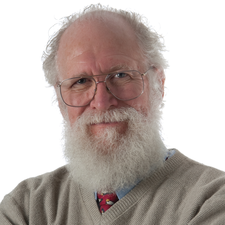The tool isn't the problem
Doghouse – Software Freedom

Restricting uses for FOSS may seem appealing, but it also might not be the solution some imagine.
Recently the question of whether free software (or even open source) should have some clause put into the license to keep the software from being used for "bad" purposes came up again. I believe that most of this was inspired by the war between Ukraine and Russia, and people not wanting their software used for purposes of war. Some of this is probably also inspired by various governments using computer vision software to spy on their citizens or open AI software to establish surveillance. One person even brought up the concept of using "his" free software in nuclear weapons.
I am a pacifist. I do not believe in war as a solution. However, this does not mean that I would just throw up my hands if a warmongering power attacked my country and started harming people. Therefore I can understand the feelings of these people.
However, there are many other things that some people do not like, and such people would object to others using "their" software for doing these things.
[...]
Buy this article as PDF
(incl. VAT)
Buy Linux Magazine
Subscribe to our Linux Newsletters
Find Linux and Open Source Jobs
Subscribe to our ADMIN Newsletters
Support Our Work
Linux Magazine content is made possible with support from readers like you. Please consider contributing when you’ve found an article to be beneficial.

News
-
The Next Linux Kernel Turns 7.0
Linus Torvalds has announced that after Linux kernel 6.19, we'll finally reach the 7.0 iteration stage.
-
Linux From Scratch Drops SysVinit Support
LFS will no longer support SysVinit.
-
LibreOffice 26.2 Now Available
With new features, improvements, and bug fixes, LibreOffice 26.2 delivers a modern, polished office suite without compromise.
-
Linux Kernel Project Releases Project Continuity Document
What happens to Linux when there's no Linus? It's a question many of us have asked over the years, and it seems it's also on the minds of the Linux kernel project.
-
Mecha Systems Introduces Linux Handheld
Mecha Systems has revealed its Mecha Comet, a new handheld computer powered by – you guessed it – Linux.
-
MX Linux 25.1 Features Dual Init System ISO
The latest release of MX Linux caters to lovers of two different init systems and even offers instructions on how to transition.
-
Photoshop on Linux?
A developer has patched Wine so that it'll run specific versions of Photoshop that depend on Adobe Creative Cloud.
-
Linux Mint 22.3 Now Available with New Tools
Linux Mint 22.3 has been released with a pair of new tools for system admins and some pretty cool new features.
-
New Linux Malware Targets Cloud-Based Linux Installations
VoidLink, a new Linux malware, should be of real concern because of its stealth and customization.
-
Say Goodbye to Middle-Mouse Paste
Both Gnome and Firefox have proposed getting rid of a long-time favorite Linux feature.
